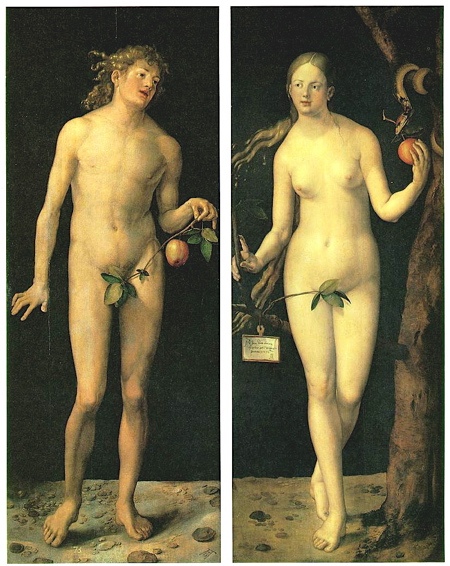Most U.S. Adults Believe in God, Only 58% are “Absolutely Certain”
Multinational surveys have often reported that
Americans are much more likely to believe in God than people in most other
developed countries, particularly in Europe. However, a new Harris Poll finds
that 42 percent of all U.S. adults say they are not “absolutely
certain” there is a God, including 15 percent who are “somewhat
certain,” 11 percent who think there is probably no God and 16 percent who
are not sure.

Multinational surveys have often reported that
Americans are much more likely to believe in God than people in most other
developed countries, particularly in Europe. However, a new Harris Poll finds
that 42 percent of all U.S. adults say they are not “absolutely
certain” there is a God, including 15 percent who are “somewhat
certain,” 11 percent who think there is probably no God and 16 percent who
are not sure.
Over the last few years, several different surveys have found that more people admit to potentially embarrassing beliefs or behaviors when answering online surveys (without interviewers) than admit to these behaviors when talking to interviewers in telephone surveys. They are also three times more likely to say that their sexual orientation is gay, lesbian or bi-sexual. Researchers call this unwillingness to give honest answers to some questions in telephone surveys a “social desirability bias.”
It is therefore no surprise that in this online survey, more people say they are not absolutely certain there is a God than have given similar replies in other surveys conducted by telephone.
Only 76 percent of Protestants, 64 percent of Catholics, and 30 percent of Jews say they are “absolutely certain” there is a God. However, most Christians who describe themselves as “Born Again” (93%) are absolutely certain there is a God.
Are believers declining?
Three years ago, in an identical survey, 79 percent of adults said they believed in God and 66 percent said they were absolutely certain that there is a God. In this new survey, those numbers have declined to 73 percent and 58 percent respectively.
My guess is that it takes more than an essential understanding of science to loose the bonds of superstition. I suppose “faith” is still critical to sanity for some folks; though, obviously, that number continues to decline.
What is so difficult about folks taking just one step towards decision-making grounded in material reality — instead of relying on catechistic almanacs of mystery and myth written centuries ago?
Over the last few years, several different surveys have found that more people admit to potentially embarrassing beliefs or behaviors when answering online surveys (without interviewers) than admit to these behaviors when talking to interviewers in telephone surveys. They are also three times more likely to say that their sexual orientation is gay, lesbian or bi-sexual. Researchers call this unwillingness to give honest answers to some questions in telephone surveys a “social desirability bias.”
It is therefore no surprise that in this online survey, more people say they are not absolutely certain there is a God than have given similar replies in other surveys conducted by telephone.
Only 76 percent of Protestants, 64 percent of Catholics, and 30 percent of Jews say they are “absolutely certain” there is a God. However, most Christians who describe themselves as “Born Again” (93%) are absolutely certain there is a God.
Are believers declining?
Three years ago, in an identical survey, 79 percent of adults said they believed in God and 66 percent said they were absolutely certain that there is a God. In this new survey, those numbers have declined to 73 percent and 58 percent respectively.
My guess is that it takes more than an essential understanding of science to loose the bonds of superstition. I suppose “faith” is still critical to sanity for some folks; though, obviously, that number continues to decline.
What is so difficult about folks taking just one step towards decision-making grounded in material reality — instead of relying on catechistic almanacs of mystery and myth written centuries ago?
Posted: Sat - November 4, 2006 at 05:24 AM